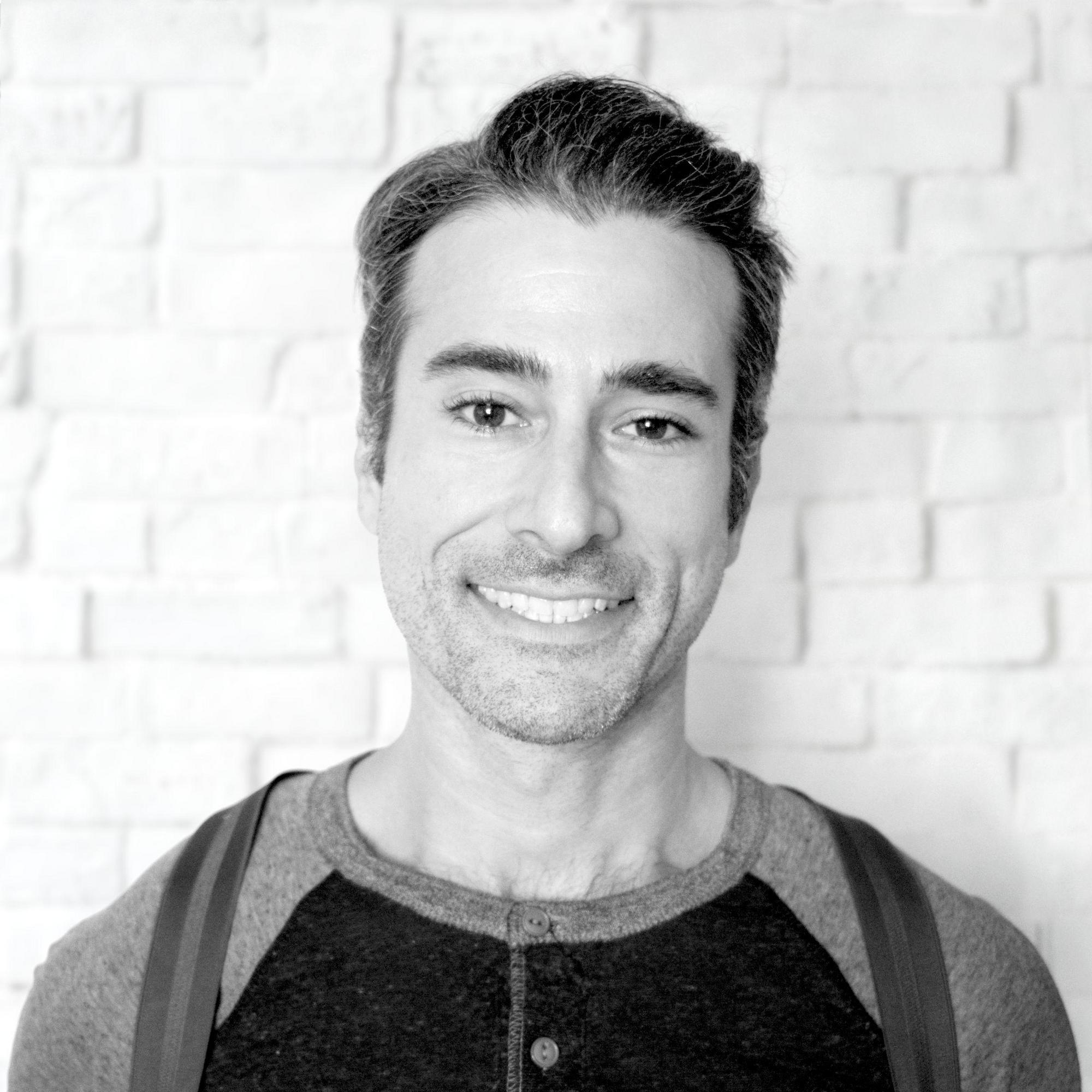Charney Kaye (twitter) of XJ music.
Tell us about yourself?
Born and raised in Chicago, I’m a lifelong artist, musician, and hacker, the beneficial type, empathetically building technology to solve problems and connecting software with media.
I attended NYU Tisch, Kanbar Film & TV, and Clive Davis School of Recorded Music in New York City, then built a career in media and software.
At once, I’m obsessed with detail yet broad and tenacious about capturing value, seeking always to understand software and media in the context of our society, focusing efforts where our impact is most significant.
Professionally, I’ve built an arsenal of skills ranging from typography to Java and honed my design thinking over hundreds of projects.
Living in California to develop XJ music, I’m both a seasoned veteran and a contemporary student of human-machine interaction, from R&D to implementation.
What do you think is the single biggest misconception people have when it comes to startups?
The biggest misconception is that a startup is a remarkable thing different from regular businesses. But a startup is just the first phase of the life of a business.
A startup is a group of people in deliberate pursuit of a business model, and the moment you have a model, you are a business. The concept of a startup fueled by fundraising is a short-sighted delusion. Intelligent investors put their money where it’s going to generate a return.
So unless your startup is a scam, you as a startup must make it your intention to create a return. If you believe in capitalism, it’s your job to bring something into existence that generates an ongoing net value gain.
Funding is only a means to that end. Intelligent growth happens against known targets. Businesses grow blindly and shrink quickly, resulting in massive layoffs. Sound familiar?
If you could go back in time to any moment from your journey, and give yourself one tip, what would it be?
I would tell my young self at the beginning of my career, don’t worry about making money. While you’re young enough to be broke easily, just focus on learning, and develop your self-confidence based on actual work experience, self-care, and deepening your relationships.
I’d tell my young self to be patient, take my time and listen to what the adults in my life are telling me because they’re right, I’m wrong, and I’m not going to prove anything but gravity.
What makes you stand out as an entrepreneur?
My early career was all freelancing, and I’d worked at over 100 companies by the time my peers were on their third job. Candidly, my experience working at these companies for weeks at a time was brief compared to the depth of full-time employment for years.
What’s unique is experiencing the range of people and becoming skilled at quickly assessing a new company.
I’ve also collaborated with many artists and creators, throwing events, working in media, interacting with people from all walks of life, and learning to tell their stories. The most incredible thrill is to be a conduit of tremendous value for others.
As an entrepreneur, integrity is my rock. I believe the role of a founder and a leader is the ultimate service role.
What are some of the best working habits you’ve gained over the past couple of years?
I’ve been working from home for many years. Some of my freelance jobs were in offices, but most were hybrid contracts where I completed a lot of work from my home studio. #1 habit is regular sleep. I am naturally a late-night creative type.
I love staying up working on projects late, all that time to myself, not being bothered while the world sleeps.
But, I have conditioned myself to know I can find time alone in the early morning instead, sipping my coffee as the sun rises. No matter how excited I am about working late, I swap it for the following day.
The crucial related habit is eating right, eating an appropriate amount daily and a good balance of macronutrients ensures that my energy and mood are consistent, which is the foundation for everything I do as an entrepreneur.
Finally, I have taken accounting classes, and it was disturbing how long I had spent faking that knowledge. Previously, I relegated accounting to a tax time activity.
Now, working with a bookkeeper, I keep my online books fresh and valuable as a decision-making tool.
Give us a bit of an insight into the influences behind the company?
I conceived of XJ over 20 years ago. In 2001, I wished I had a new kind of instrument to play with, a collaboration platform for non-stop music.
I tried a pair of MPC-2000XL drum machines connected to a DJ mixer. The idea never left through a career in building up various creative and technical skills.
By 2015 I started building the prototype of XJ, and I knew that no matter what else I did for work, I would realize XJ music.
Enormous trial and error have resulted in a functioning instrument to fulfill the original dream.
My initial desire as an artist leads to my passion for realizing XJ music today.
Where do you see your business in five years?
In five years, we will have a wide range of music styles, a large community of musicians using the instrument, publishing music, and a community among listeners.
Our platform will increasingly be open to independent creators, like YouTube or Twitch, for independent creators to run their own live streams 24/7 and publish their music.
Over the next five years, I see us collaborating with more well-known musicians interested in publishing work on our platform to add a dimension to their catalog.
What do you think the biggest challenge will be for you in getting there?
In a word: listeners. I believe that revenue follows the creation of massive value. And our testing consistently indicates that we need a lot more content in our catalog to be a severe contender in the music distribution space.
We have a chicken and egg puzzle regarding audience and creator, especially the kinds of creators who would draw an audience for us while demanding that we already have an audience before they want to take any risks with us.
And then, of course, the core challenge of advancing the instrument and the state of our art such that our music is highly competitive.
Talk to us about your biggest success story so far?
Our most remarkable success is passing a series of Turing tests to prove audiences appreciated our generative approach to music.
It’s also huge that the music team now functions independently of management, collaborating in our cloud platform and making music with the instrument.
I put out fires and do feature development in response to the music team’s demands. We’ve built an impressive creative process. And I can focus on sales!
How do clients and customers find you? Are you much of a salesperson for yourself?
Service is at the heart of every business interaction. Clients and customers find me transparent and reliable.
There are times when transparency means telling people disappointing news. My strength is knowing myself, knowing how to take good reliable care of myself and show up consistently, set expectations, and exceed those expectations.
Always keep my eyes on creating the kind of value that makes people unquestionably happy about the results of working with me. At the same time, if you’re a killer salesperson interested in selling XJ music, please contact me. We need help!
What one tip would you give to fellow startup founders?
Be frugal with your cash, time, and opportunities! There are three things of no use to a startup founder: cash (already spent), time (in the past), and opportunities (missed).
The laws of business gravity apply to your startup too! Your goal is to create the best chance of exiting from a startup to a business, not a bankruptcy. Cash, time, and opportunities/relationships are precious resources.
Keep timely books and make intelligent financial decisions based on those books from day one. Take an accounting class, and improve your time management and networking skills.
Run your business by the numbers! Don’t let yourself fall victim to the delusion that your business will survive on fundraising.
And finally, what do you hope the future brings both you personally, and your business?
I hope the future finds us an audience and more collaborators. Everything I’ve done here is in the hope that others would be excited about it, too. The most excellent payoff is to see an audience respond, “we love this.”
Follow XJ music on Twitter (Charney Kaye’s Twitter) or Linkedin.




